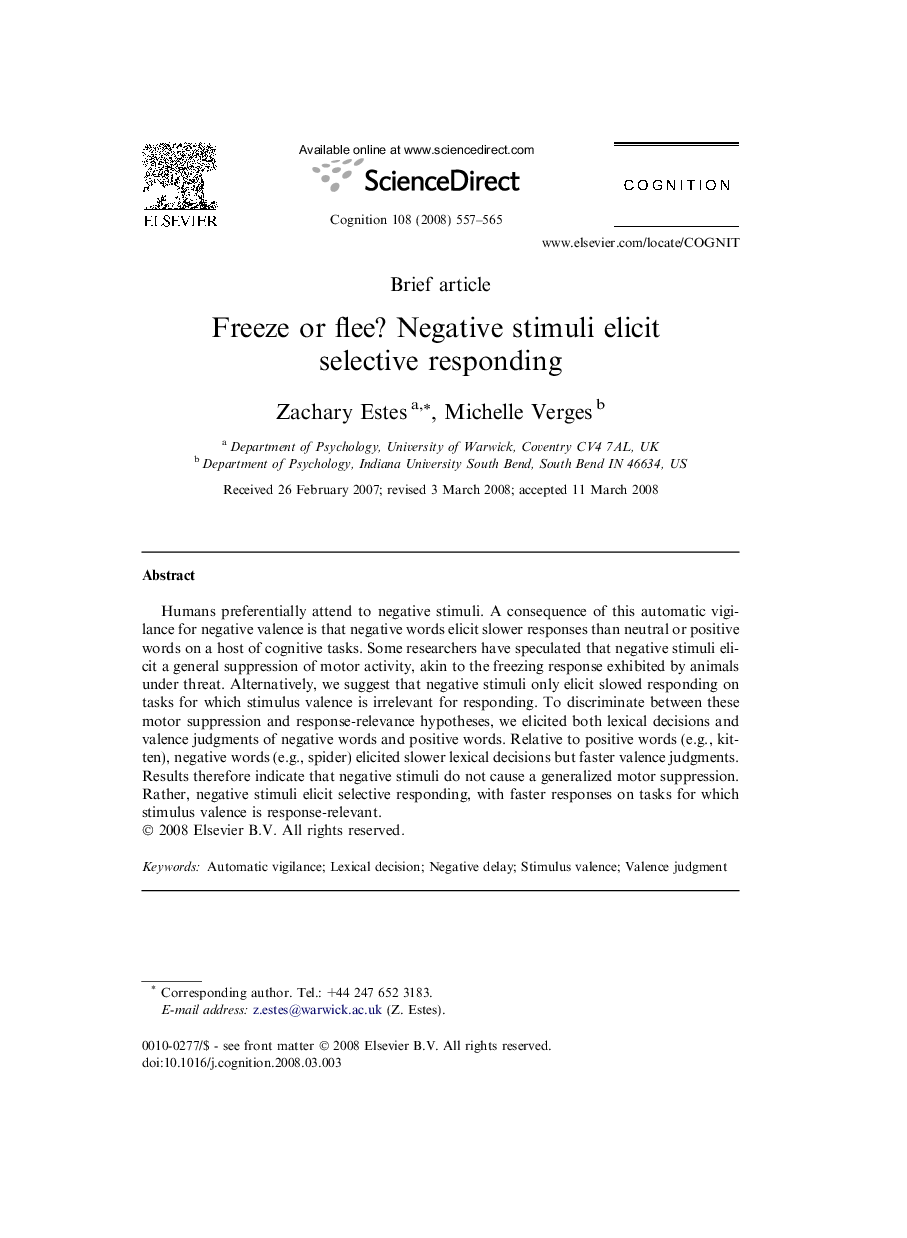| Article ID | Journal | Published Year | Pages | File Type |
|---|---|---|---|---|
| 927093 | Cognition | 2008 | 9 Pages |
Humans preferentially attend to negative stimuli. A consequence of this automatic vigilance for negative valence is that negative words elicit slower responses than neutral or positive words on a host of cognitive tasks. Some researchers have speculated that negative stimuli elicit a general suppression of motor activity, akin to the freezing response exhibited by animals under threat. Alternatively, we suggest that negative stimuli only elicit slowed responding on tasks for which stimulus valence is irrelevant for responding. To discriminate between these motor suppression and response-relevance hypotheses, we elicited both lexical decisions and valence judgments of negative words and positive words. Relative to positive words (e.g., kitten), negative words (e.g., spider) elicited slower lexical decisions but faster valence judgments. Results therefore indicate that negative stimuli do not cause a generalized motor suppression. Rather, negative stimuli elicit selective responding, with faster responses on tasks for which stimulus valence is response-relevant.
